Tash and I had a code. We came up with it in Bikaner when we had an afternoon to ourselves, away from the rest of the group.
“Which word would be uncommon for us to use?” I asked.
“Certainly not toilet,” she said.
The idea was for us to have a quick way to communicate; I’m feeling overwhelmed. Or even, I need a break. Two foreign women can attract a lot of attention in India, sometimes even a crowd.
As always, my mind immediately jumped to food. To the tiny claws of blackened bananas we’d bought from stalls. To the mango diced into thick, creamy lassis.
“How about strawberries?” I suggested.
We were yet to spot even the artificial flavour of one.
“Strawberries works for me,” she said.
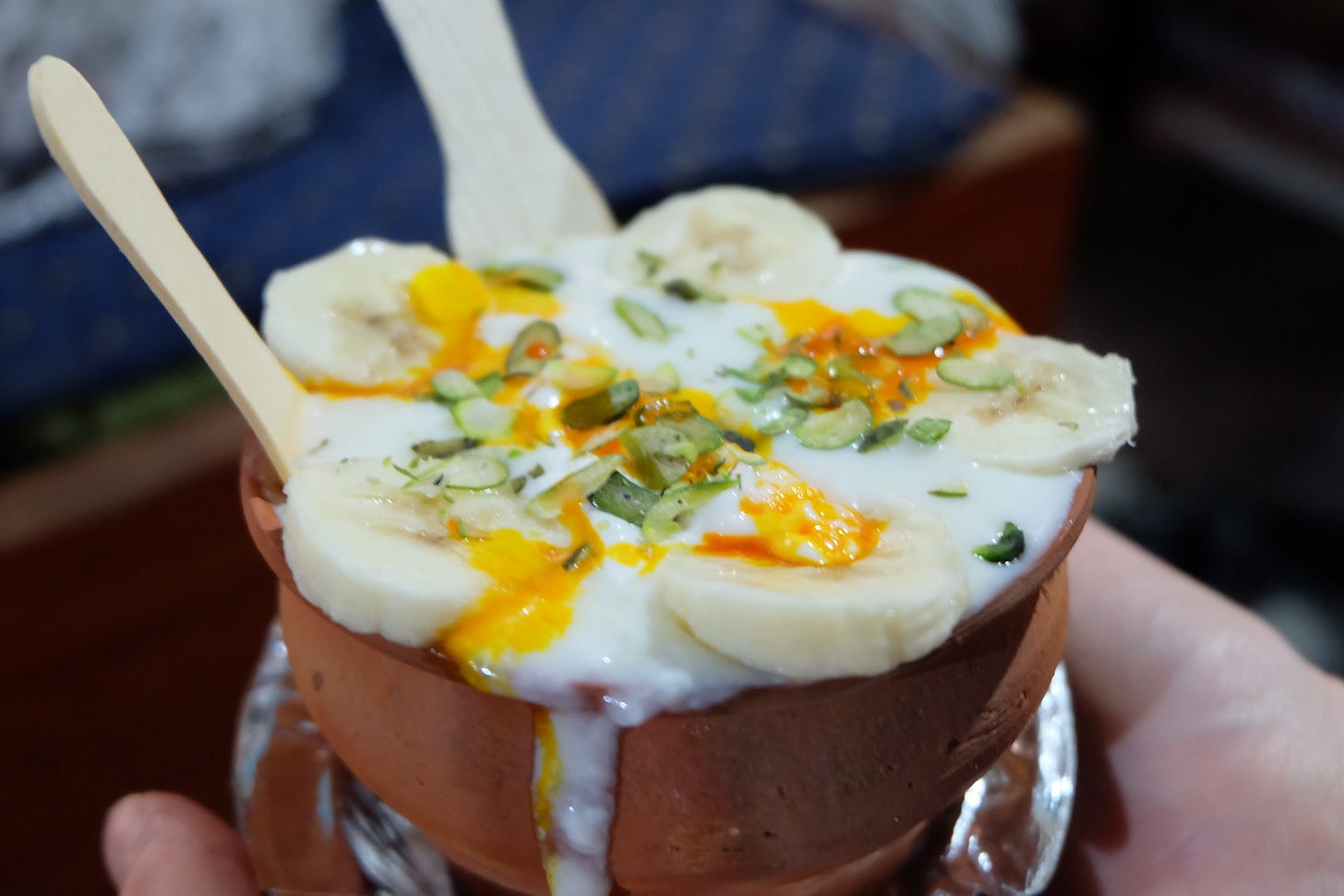
The truth was, I was already overwhelmed. Overwhelmed and overjoyed by a flash tour through Rajasthan which felt like someone had poured a bucket of ice-cold water over my head. Still now, if you ask me why I loved it so much, it’s because it shocked every sense alive.
Tash and I had only met a few days before but there’s nothing more bonding than consuming high levels of spice and sharing a bathroom. Over the following weeks we had a riot, seeing faded forts and temples for Gods we’d never heard of. Swerving round cows in tuk tuks. Sleeping under the stars in the desert and mistaking the sounds of a vomiting group member for a camel. Watching the sun rise over the Taj Mahal, a pilgrimage for both of us in the names of our grandmothers.
“You know you’ve been in India for too long when you’re looking forward to a good night’s sleep on the train,” she said, on our way to the station.
We’d also stayed in grotty hotels that offered the absolute opposite to what their names promised. In Hotel Perfect, we slept on top of the sheets for fear of getting in them. Hotel Dezire had curtains that opened to a concrete wall.
“I think this journey is going to be quite brutal,” I replied.
The train to Varanasi should take 13 hours, but we were told to pack enough food and water for 24. The line was diverted and we were leaving from a remote town. Our guide, usually collected, had lines of sweat running to the corners of his ears as he counted us on the platform.
It could have been the backdrop for a budget horror film. Lights flickered and barely cut through the depth of the night. Stray dogs padded open mouthed along the tracks. Our plastic bags with supplies rustled as we tried every trick to relieve ourselves from the oppressive heat. Monkeys scaled the balustrades.
“When is the train going to arrive?” somebody asked.
“I don’t know,” our guide said.
Tash went on an expedition to find a bathroom but came back looking solemn, declaring it too scary and dirty to go inside.
“When is the train going to arrive?” somebody asked.
“I don’t know,” our guide said.
About half an hour later there was a scuffle and a yell. A monkey had waited for the opportunity to nab someone’s snacks and scratched them in the process. Somebody else screamed until our guide stamped and clapped it away, back to its mates on the railings, observing us from above.
Tash was stood away from the group, arms crossed, a single tear on her cheek.
“Strawberries,” she said, as I approached.
When the train finally arrived, we settled down to a dinner of samosas and stale bourbons. She was right, you know you’ve been in India for too long when you are gently rocked to sleep on your tiny bunk, undisturbed by ballads playing out of people’s phones and the call of chai, chai, chai as the seller pours tea from a metal urn.
“Just so you know, I saw a rat in the carriage.” One of our group declared the following morning.
“Great!” I replied, “Thanks for sharing.”
The remaining hours of the journey folded into one another. Impatience is not an emotion that’s welcome in this country, you just have to roll with it. We prepared for 24 hours and contented with a mere 22.
If all of this sounds like fresh hell to you, then I can only wholeheartedly recommend that you do not go. Even without train journeys on a shoestring tour, there will be discomfort. Your negative expectations will be proven 100 times over as you are confronted with the extremes of humanity that are illogical and heart wrenching.
Yet leave your ego on the plane and you’ll instead be rewarded with an ancient and chaotic beauty like nowhere else on earth. With the realisation, and perhaps even the reassurance, that you are nothing but a speck in this great, big, brawling mass of people whose motives are not always rational, but spiritual.
I’ve been keenly watching the coverage of Kumbh Mela this past month, following the good and the bad. It’s the biggest Hindu festival and largest gathering on the planet, expected to draw over 400 million people. Some people said on camera they’ve been waiting and saving their entire lives to attend, travelling insane distances to take a dip in holy waters that cleanse body and soul.
There was no festival in Varanasi and our 22 animal-filled hours probably can’t be considered arduous, but we did witness the pull of the Ganges all the same. Bloated by the monsoon, families carried deceased relatives to burn them on its shores in a riot of colour and ash. We watched prayer ceremonies, placed lamps on the water and tried to wrap our heads around a spectacle of mortality and death that is surreal for a traveller and holy for the rest.
It almost provokes envy, for those without faith like myself, to experience India’s overpowering spirituality. It certainly provokes confusion, for those preferring the beach, as to why comfort zones should be pushed in favour of seeing life entirely different to how you know it.
Nowhere else even comes close. It’s precisely this shock to your senses, this overwhelm, that strips you back to the present and to feeling very, very alive.
“Strawberries,” Tash and I still text sometimes, between the others we send every day.




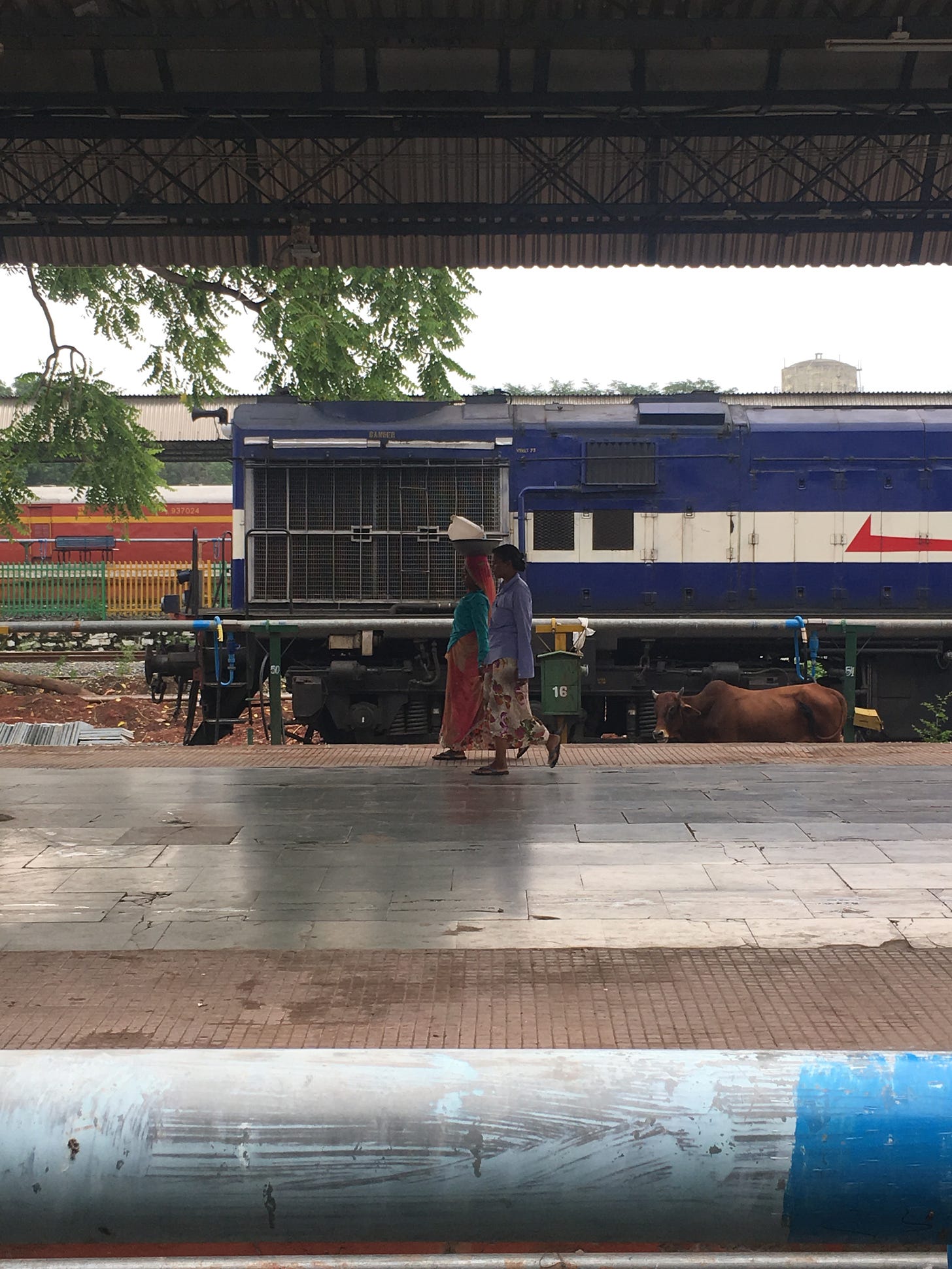
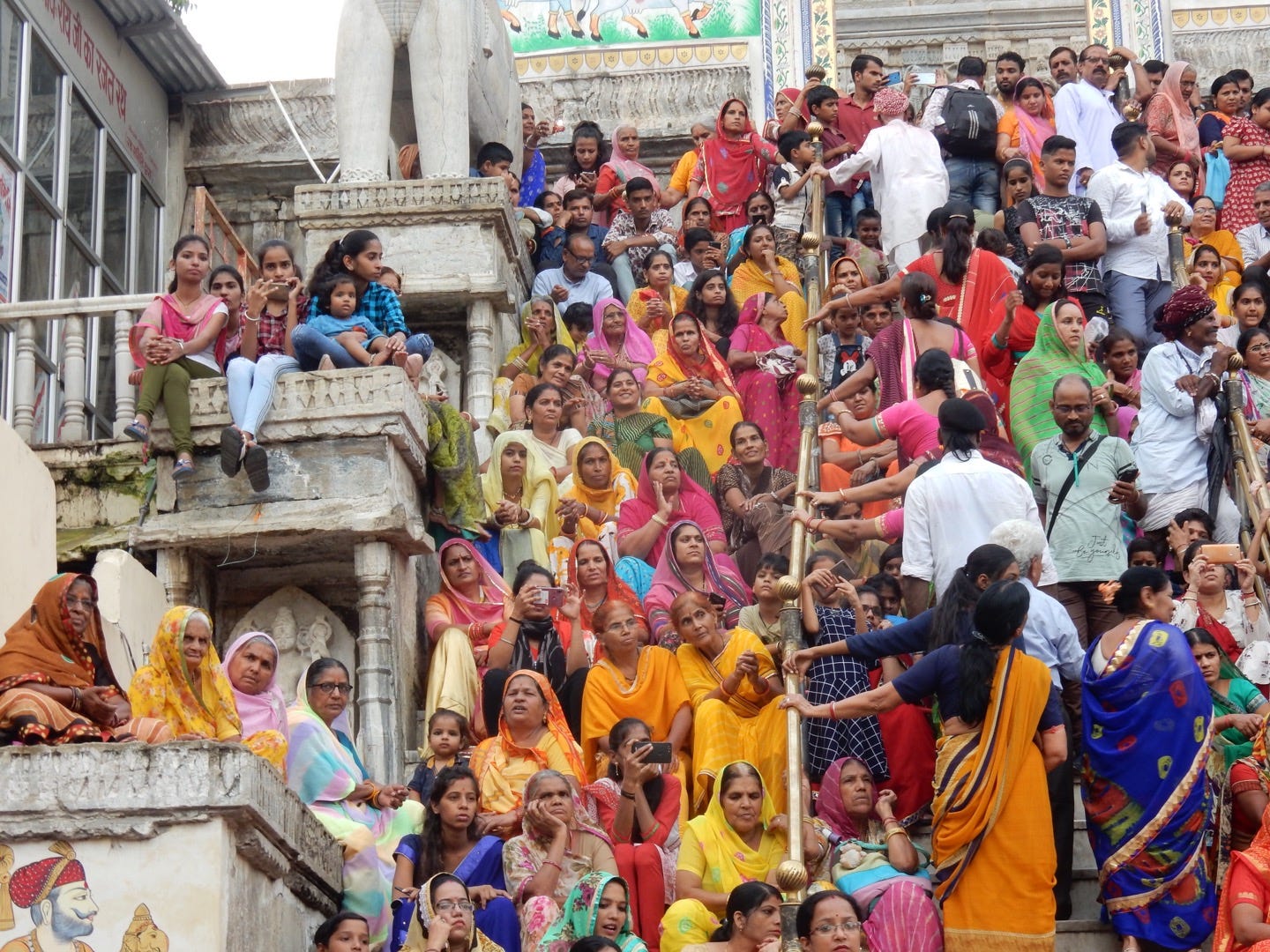
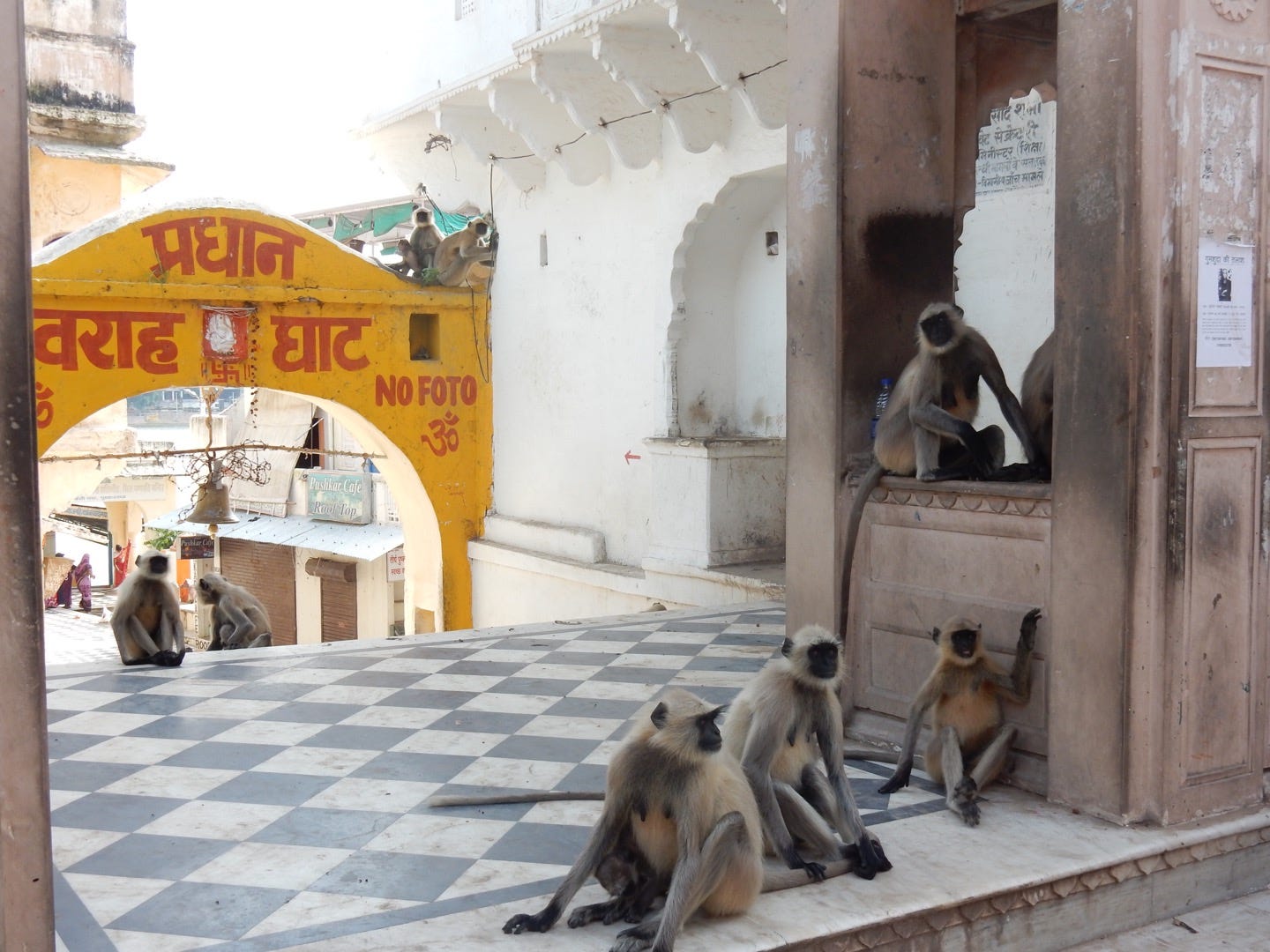

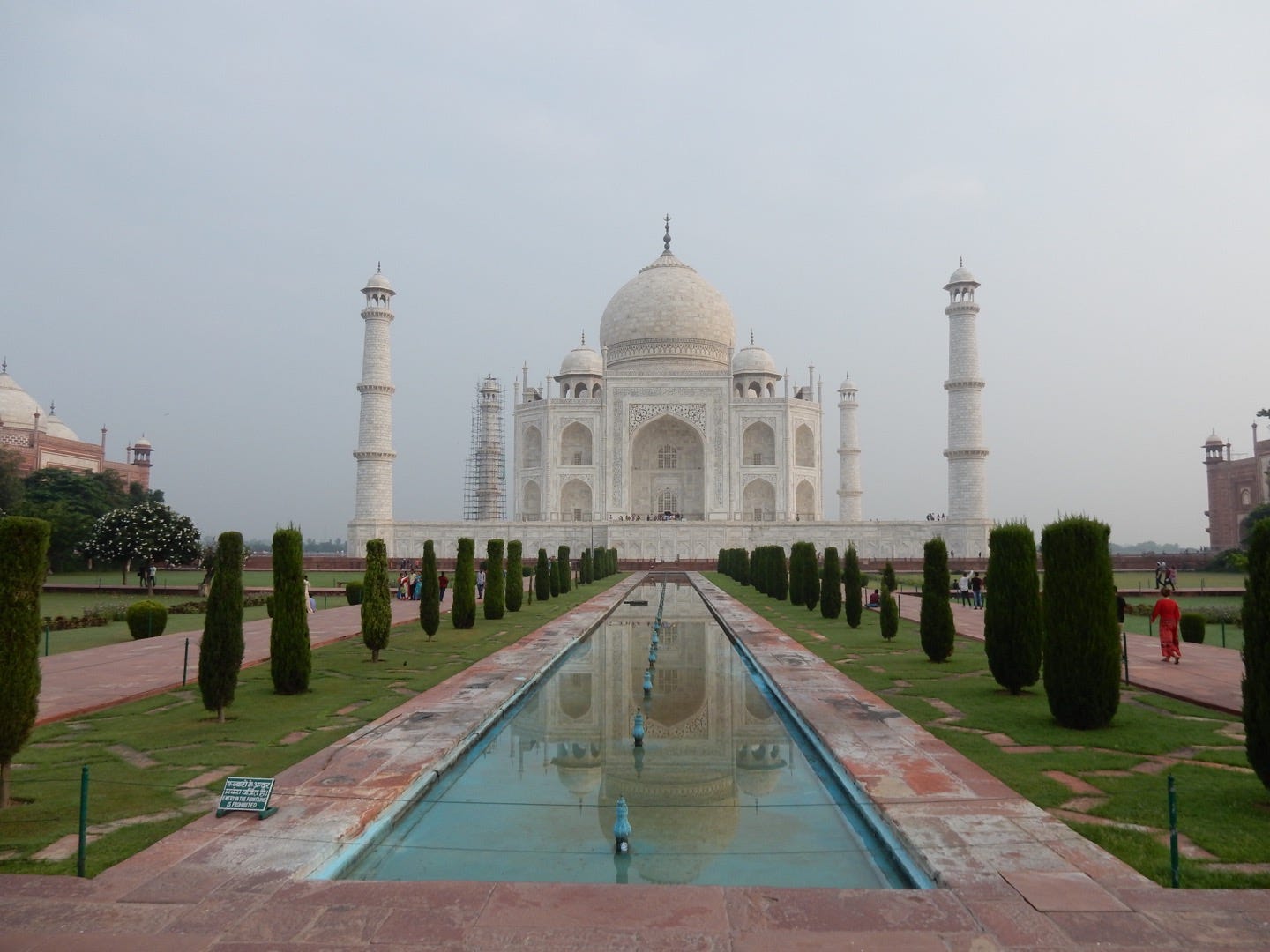
I admire your courage to do that long train ride in a non-ac compartment on the train!
And what a coincidence that my husband and I recently chose the word "strawberry" as a code when one's not feeling great in the presence of others.